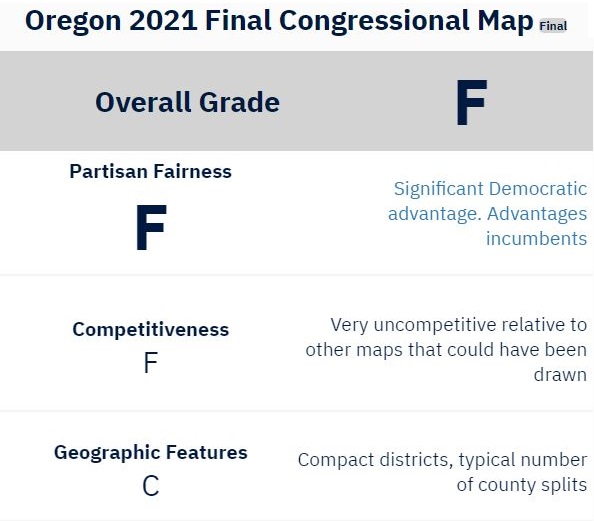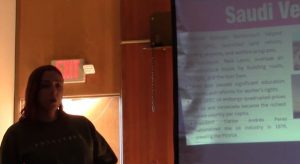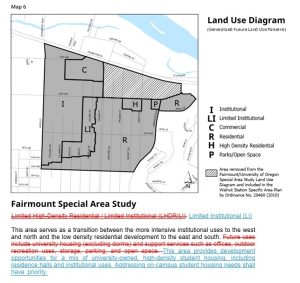Restore democracy in Oregon by ending corruption
7 min read
by Marty Wilde
The endurance of a great power relies on its ability to fight corruption and reward merit. In our time, the most influential actors are two autocracies – China and Russia – and one struggling democracy – the United States.
I’ve always had confidence that, whatever our shortcomings, we in the U.S. will endure because the machinery of democracy is self-correcting to some degree. Autocracies, in contrast, soon fall into corruption and decline because their systems reward insiders rather than those with talent and drive.
The U.S. faces many challenges to its ability to fight corruption and reward merit, while a high level of corruption erodes the ability of Russia and China to compete effectively on the international stage.
What is meant by “Corruption” in Governance?
The good governance organization Transparency International defines corruption as “the abuse of entrusted power for private gain.” Among the examples they include are:
- Public servants demanding or taking money or favors in exchange for services
- Politicians misusing public money or granting public jobs or contracts to their sponsors, friends, and families, and
- Corporations bribing officials to get lucrative deals.
Corruption in the United States
Recently, my Spanish teacher, a Mexican national, asked me, “Do you have corruption in the U.S.?” In my halting Spanish, I replied that we do. I see it primarily as “soft corruption.” In the Legislature, some of my colleagues required government contracts to go to their supporters, bypassing fair competition.
Some executive branch leaders were promoted despite having grossly mismanaged agencies, often with serious negative impacts on the public. And, fixing the rules to maintain partisan power was not even seen as corruption, but rather just the natural order of things.
If you wonder why we don’t have campaign contribution limits, non-partisan redistricting, and primaries where everyone gets a vote, despite public support for these principles, you need look no farther than legislatures who benefit from the status quo and resist changes that would allow fair competition.
Nor are these problems limited to Oregon. To give an example from more conservative states, 10 have failed to expand Medicaid, despite overwhelming public support and a willingness by hospitals to fund it; their legislators put their loyalty to party above the will of the people. Both conservative and liberal states gerrymandered their congressional maps to gain partisan advantage, often breaking the law to do so.
And, of course, we also have the glaring example of election denialism as the quintessential expression of the lust for power fighting the will of the people. While cases of outright bribery and “hard” corruption are fortunately rare here, “soft” corruption pervades our politics, prevents fair competition, and threatens our future as a democracy.
Corruption Overseas
Serving in a number of countries during conflict or the post-conflict period, I saw both corruption and notable attempts to fight it. In Qatar, my job was to get fair contracts for the US, when the local government only cared about which companies supported the royal family. In Bosnia, political patronage networks were hiding war criminals from justice. In Afghanistan, I watched a nominally democratic government allow the wholesale looting of the bank that paid public salaries and refuse to allow prosecutions, so that the anti-corruption court never got any cases.
I also saw some notable successes. On a recent trip to Bosnia, the inspectors general reported to us about a jury system they used to make contracting decisions to avoid corruption. On another trip, I trained their equivalent of the FBI on human rights and observed how they worked together across ethnic lines, despite having served on opposing sides in their civil war. In Ukraine, we’ve seen notable triumphs against corruption, even while they are at war with Russia. In Israel, public outcry caused the Prime Minister, currently on trial for corruption, to pause judicial reforms that benefited him personally.
Recent events also show the price of corruption. Russia’s cronyism hollowed out their military and hid its ineptitude. Iran’s favoritism for religiously intolerant insiders has led to explosive street demonstrations. And the Arab Spring that started with Tunisian Mohamed Bouazizi’s self-immolation in response to local city government corruption now continues to challenge autocrats throughout the region.
We have work to do, both at home and overseas. In the U.S., we must stand up for democracy by ending the legalized corruption of unlimited campaign contributions and sole-source contracting, by giving people a meaningful choice in their elections, and, above all, by protecting the right to vote. Overseas, we should be trumpeting the success of Ukraine’s fight against corruption as an example of effective governance and what it can do to bring people together. Fighting autocracy at home and abroad means fighting corruption.
Ending Gerrymandering in Oregon
It’s a fundamental premise of democracy that voters should choose their representatives, not the other way around. Despite nominally requiring non-partisan redistricting, Oregon’s legislative redistricting process received an “F” for both partisan fairness and competitiveness from the Princeton Gerrymandering Project. Initiative Petition 14 would change that by giving an independent commission of the people the power to redraw districts every 10 years. I hope you’ll join me in supporting this effort by signing the petition and supporting it on the ballot. Go to www.peoplenotpoliticiansoregon.com to get started.
What will Initiative Petition 14 do?
IP 14 creates an Independent Citizens’ Redistricting Commission to redraw fair maps for Oregon’s 90 legislative districts. Currently, gerrymandered maps drawn by partisans have divided communities of interest, disenfranchised voters, and placed incumbent politicians in “safe seats” without accountability.
Why do we need an Independent Citizens’ Redistricting Commission?
Politicians have a built-in conflict of interest when they are allowed to pick their voters. When Oregon’s politicians redrew our current maps in 2021, the process was not fair or transparent. Princeton Gerrymandering Project gave Oregon’s congressional map an “F” for partisan fairness. Maps were gerrymandered to protect incumbent politicians, with 97.4% of incumbent legislators reelected in the districts they had drawn for themselves.
Do other states have Independent Redistricting Commissions?
Yes! Across the country, independent commissions draw fairer maps. Independent commissions functioning in Arizona, California, Colorado, and Michigan have led to more accountable elected officials, requiring politicians to work across party lines to get re-elected. Gerrymandered districts deepen polarization and punish representatives who compromise to deliver results for constituents.
Who can apply to be on the Independent Citizens’ Redistricting Commission?
Any Oregonian who has been registered to vote for three years.
How does an Independent Commission draw fairer voting maps?
The Oregonians selected to serve on this commission are balanced by party. They then must use a mapping process to establish districts that: are geographically contiguous, minimize divisions of a city/county/community of interest, achieve competitiveness, may not favor or discriminate against a candidate or political party.
Who decides who can serve on the independent commission?
A review panel of three administrative law Judges or tribal judges. Oregon’s equivalent of a chief auditor, the chief administrative law judge, will select the judges to serve on this review panel. The three judges must be registered to vote in three different parties to ensure fairness and impartiality.
How is the Independent Citizens’ Commission selected?
The review panel selects 50 Democrats, 50 Republicans, and 50 Other voters from those who have applied, eliminating those who have conflicts of interest. The panel assesses which applicants have the most relevant analytical skills, the ability to be impartial and promote consensus, and an appreciation for and are representative of Oregon’s diversity. Then two from each group are selected randomly as commissioners. These six people will then use the same criteria to select the next six commissioners (again, two from each group) to complete the 12-member commission consisting of four Democrats, four Republicans, and four Other voters) .
Who Belongs to People Not Politicians?
The broad coalition includes: League of Women Voters of Oregon, Common Cause Oregon, Oregon State Chamber of Commerce, Independent Party of Oregon, Oregon Farm Bureau, Oregon Home Builders, Oregon Restaurant and Lodging Association, Oregon Association of Nurseries, Klamath Tribal Council, Forward Oregon, and many current and former elected officials from both sides of the aisle for fair representation and good government.
What can you do to help?
Sign the petition! Go to www.peoplenotpoliticiansoregon.com to download a petition. Get your family and friends to sign too! Then post on social media about why you signed to help spread the word.
Want to do more to help Democracy in Oregon?
You can volunteer to help collect more signatures at events in your area or help us with data entry! Just email us at info@peoplenotpoliticiansoregon.com. You can also contribute to this effort at www.peoplenotpoliticiansoregon.com or you can mail a check to People Not Politicians, P.O. Box 42307, Portland, OR 97242.
Dishonest Campaigning
I remain disappointed in outright falsehoods in two of our local measures. To be clear, the measure on the ballot is a ban on natural gas hookups in a particular type of new construction. It will not impact anyone who already has natural gas service. Remember, what we put in the air, our children will have to take out.
Second, the advocacy for the renewal of the law enforcement levy as somehow benefiting people suffering from mental health problems and addiction is also misleading. Patients who receive Medicaid/OHP (as most pre-trial detainees do) have 71% of their medical costs covered by the federal government, provided they are not in jail. When they are in jail, the federal government pays 0%. Put another way, we get three times the “bang for the buck” for treatment provided to those who need it—but only when they are not in custody. It’s reasonable to have a debate about how many beds we need in the jail, but let’s not pretend that this is about efficiently treating people with behavioral health problems.
Contact Marty Wilde by email: wildefororegon@gmail.com.







